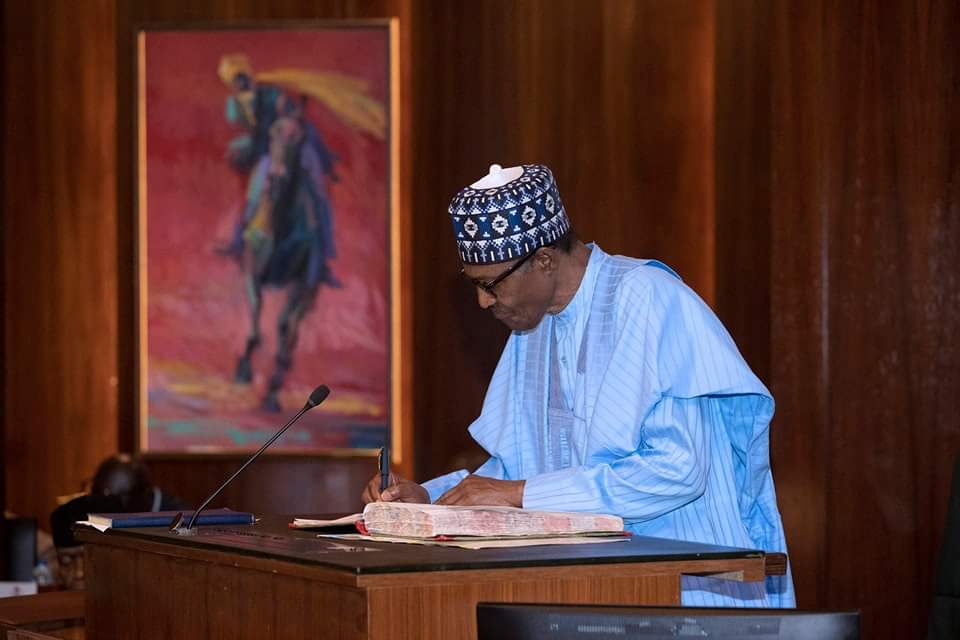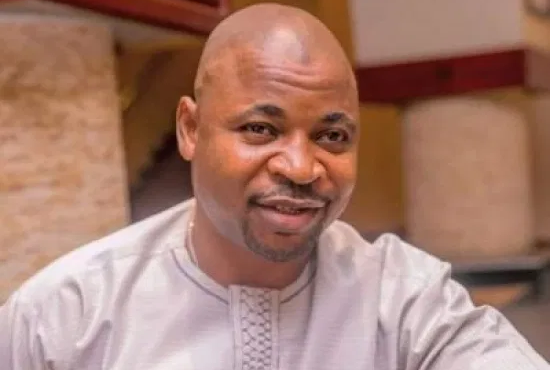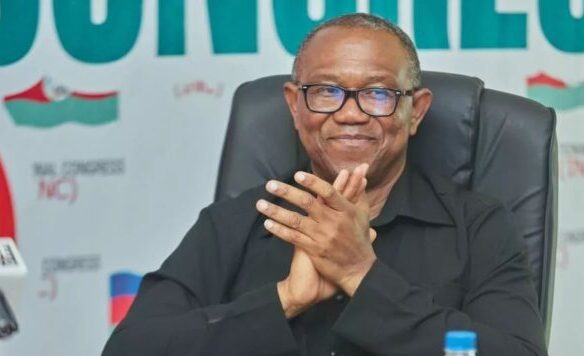PRESIDENT BUHARI SWEARS-IN 7 ICPC BOARD MEMBERS 0A President Muhammadu Buhari during the inauguration of board members of the independent Corrupt Practices and Other Related Offences Commission (ICPC) at the Council Chambers. PHOTO; SUNDAY AGHAEZE. MARCH 15TH 2023
Idris Wase, deputy speaker of the house of representatives, says President Muhammadu Buhari has signed 16 constitutional amendment bills into law.
In a statement issued on Friday, Wase, who is the chairman of the house committee on constitution amendment, commended Buhari, saying the laws grant more powers to the states.
The bills signed into law include financial independence for state houses of assemblies and state Judiciary.
Others include bills that seek to remove railway, prison, and electricity from the exclusive legislative list to the concurrent list.
Advertisement
Buhari also signed a bill that requires the president and governors to submit the names of persons nominated as ministers or commissioners within 60 days of taking the oath of office for confirmation by the senate or state house of assembly.
With the new law, Bola Tinubu, President-elect, will have to name his cabinet within 60 days after taking the oath of office on May 29, and transmit it to the senate for confirmation.
In January, TheCable reported that 35 constitutional amendment bills were passed and transmitted to Buhari for assent.
Advertisement
A total number of 44 bills were transmitted to the state house of assemblies by the national assembly but only 35 were approved by 24 states.
Financial and legislative autonomy for local governments were among the bills not approved by the states.
Sections 9(2) and (3) of the 1999 constitution require two-thirds of all the state assemblies — 24 states — to approve constitutional amendment bills.
Wase said four of the constitutional amendment bills signed into law by Buhari deal with “devolution of powers/promoting true federalism and also strengthening of state houses of assembly and judiciary”.
Advertisement
He commended the president and members of the national assembly for “working tirelessly to ensure the passage of this legacy legislations”.
Below are the bills signed into law.
1. Fifth Alteration (No.1), the Bill seeks to alter the Constitution of the Federal Republic of Nigeria, 1999 to change the names of Afikpo North and Afikpo South Local Government Areas; and for related matters.
2. Fifth Alteration (No.2), the Bill seeks to alter the Constitution of the Federal Republic of Nigeria, 1999 to change the name of Kunchi Local Government Area; and for related matters.
Advertisement
3. Fifth Alteration (No.3), the Bill seeks to alter the Constitution of the Federal Republic of Nigeria, 1999 to change the names of Egbado North and Egbado South Local Government Areas; and for related matters.
4. Fifth Alteration (No.4), the Bill seeks to alter the Constitution of the Federal Republic of Nigeria, 1999 to correct the name of Atigbo Local Government Area; and for related matters.
Advertisement
5. Fifth Alteration (No.5), the Bill seeks to alter the Constitution of the Federal Republic of Nigeria, 1999 to correct the name of Obia/Akpor Local Government Area; and for related matters.
6. Fifth Alteration (No.6), the Bill seeks to alter the Constitution of the Federal Republic of Nigeria, 1999 to provide for the financial independence of State Houses of Assembly and State Judiciary; and for related matters.
Advertisement
7. Fifth Alteration (No.8), the Bill seeks to alter the Constitution of the Federal Republic of Nigeria, 1999 to regulate the first session and inauguration of members-elect of the National and State Houses of Assembly; and for related matters.
8. Fifth Alteration (No.9), the Bill seeks to alter the Constitution of the Federal Republic of Nigeria, 1999 to delete the reference to the provisions of the Criminal Code, Penal Code, Criminal Procedure Act, Criminal Procedure Code or Evidence Act; and for related matters.
Advertisement
9. Fifth Alteration (No.10), the Bill seeks to alter the Constitution of the Federal Republic of Nigeria, 1999 to exclude the period of intervening events in the computation of time for determining pre-election petitions, election petitions and appeals; and for related matters.
10. Fifth Alteration (No.12), the Bill seeks to alter the Constitution of the Federal Republic of Nigeria, 1999 to provide for the post-call qualification of the Secretary of the National Judicial Council; and for related matters.
11. Fifth Alteration (No.15), the Bill seeks to alter the Constitution of the Federal Republic of Nigeria, 1999 to delete the item “prisons” in the Exclusive Legislative List and redesignate it as “Correctional Services” in the Concurrent Legislative List; and for related matters.
12. Fifth Alteration (No.16), the Bill seeks to alter the Constitution of the Federal Republic of Nigeria, 1999 to move the item “railways” from the Exclusive Legislative List to the Concurrent Legislative List; and for related matters.
13. Fifth Alteration (No.17), the Bill seeks to alter the Constitution of the Federal Republic of Nigeria, 1999 to allow States to generate, transmit and distribute electricity in areas covered by the national grid; and for related matters.
14. In Fifth Alteration (No.23), the Bill seeks to alter the Constitution of the Federal Republic of Nigeria, 1999 to require the President and Governors to submit the names of persons nominated as Ministers or Commissioners within sixty days of taking the oath of office for confirmation by the Senate or State House of Assembly; and for related matters.
15. In Fifth Alteration (No.32), the Bill seeks to alter the Constitution of the Federal Republic of Nigeria, 1999 to correct the error in the definition of the boundary of the Federal Capital Territory, Abuja; and for related matters.
16. In Fifth Alteration (No.34), the Bill seeks to alter the Constitution of the Federal Republic of Nigeria, 1999 to require the Government to direct its policy towards ensuring the right to food and food security in Nigeria; and for related matters.
Add a comment






